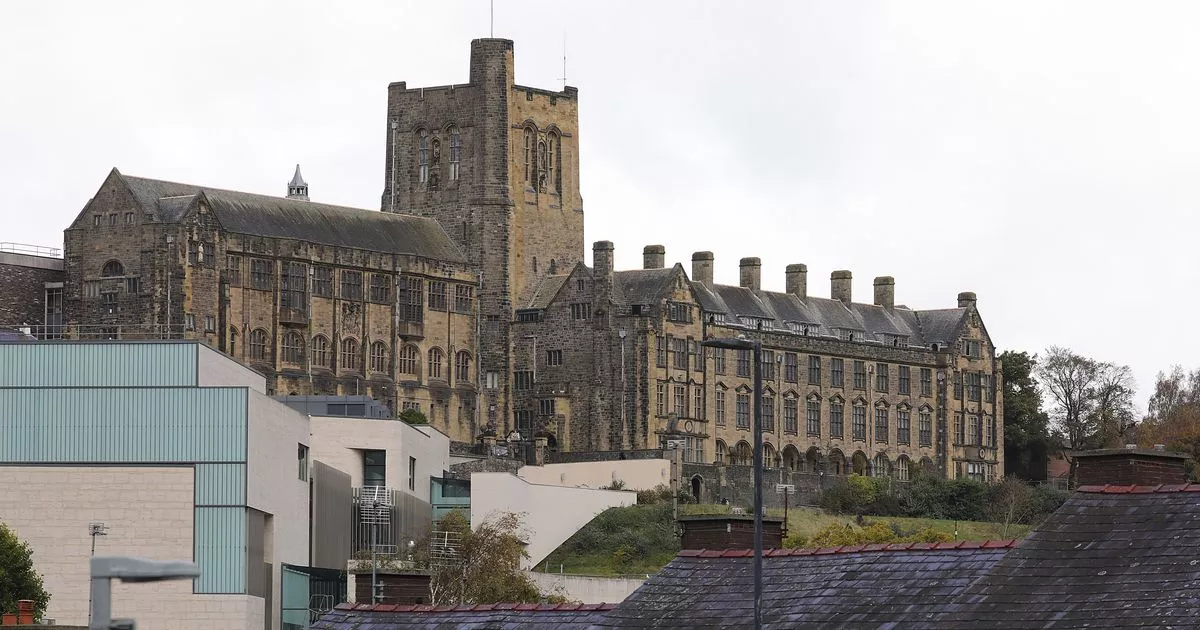By Abbie Wightwick,David Powell
Copyright dailypost

A university is in chaos with no clarity on who is teaching what amid a swathe of job cuts, a union claims. Some 200 jobs have gone as Bangor University leaders strive to make savings with two weeks till term starts.
Members of the academic union UCU have already passed a motion of no confidence in vice chancellor Professor Edmund Burke and chief financial officer Martyn Riddleston. The vote was passed at an extraordinary general meeting on August 18 by members of Bangor UCU with no opposition to the motion.
The branch leadership said it delayed the publication of the vote with the aim of reaching a negotiated settlement with management. Now the branch said “university management have decided to plough ahead with their cuts strategy” so they have gone public, reports WalesOnline.
Bangor’s latest job losses were part of a bid to save more than £15m with higher education across the UK beset by rising costs and a fall in numbers of higher paying international students. Vivek Thuppil, Bangor UCU vice-president, said: “Our members have been pushed to breaking point.
“With the departure of hundreds of staff already they are already facing impossible workloads. With only two weeks to go until classes begin departments still do not have clarity on who is teaching what.” Sign up for the North Wales Live newsletter sent twice daily to your inbox
And one staff member said: “Senior management have not been forthcoming about their financial plans moving forward beyond some unspecified comments about pursuing growth.”
Back in February, during an ongoing a row over sweeping cuts at Cardiff University and warnings that the higher education sector was in crisis, the Welsh Government announced £18.5m for institutions to help with pressures. UCU members claim this money has not been used to save jobs at Bangor.
The union members expressed “indignation” at the extraordinary general meeting that the “financial lifeline” of nearly £1.4m given to Bangor University, as its slice of the £18.5m, had not been spent in a way that would protect jobs. Mr Thuppil said: “After persistent questioning the CFO Martyn Riddleston finally admitted that the funding meant to provide breathing space to universities was spent on the medical school.
“Whilst management claim that the tertiary education regulator Medr did not convey any government intent behind this funding to save jobs it nonetheless represents a disqualifying lapse in judgement on the part of the university leadership to spend these additional taxpayer funds on unplanned infrastructure at the same time as moving to make staff compulsorily redundant.”
The motion at the extraordinary meeting in August criticised the vice chancellor and chief financial officer for what it said was not understanding the Welsh educational landscape and for undermining historically constructive industrial relations at Bangor University.
A staff member said: “Historically we had a partnership between management and union, this has now been turned on its head.”
Now Bangor University UCU branch is preparing a formal industrial action ballot potentially causing disruption during the autumn term.
“The threat of industrial action will remain unless the university management issue a guarantee of no compulsory redundancies for the 2025-26 academic year and rescind any compulsory redundancy notices that might have already been issued,” the branch said.
Bangor University was asked to respond to the vote of no confidence, and other criticisms from the UCU. In a statement, it said: “Bangor University, like many institutions across the sector, is facing significant financial challenges.
“The recent restructuring was a difficult but necessary step to help us meet financial targets and secure essential savings. Over the past year the executive board has worked closely with colleagues and campus trade unions working hard to avoid compulsory redundancies by offering voluntary exits and redeployment wherever possible.
“Over 200 staff have left the university through retirement, resignations, or voluntary severance – less than ten posts remain at risk.
“Our focus has not only been on reducing costs but also on improving efficiency and creating a sustainable operating model that supports staff and students in the context of reduced income.
“We recognise that restructuring has caused stress and uncertainty for staff and students and we remain committed to supporting the wellbeing of our community.
“This exercise, however, was an unavoidable and essential part of securing the university’s long-term future in a highly challenging HE (Higher Education) environment.”
Universities in Wales estimate a combined deficit of at least £70m at the end of the last academic year. Join the North Wales Live WhatsApp community group where you can get the latest stories delivered straight to your phone



